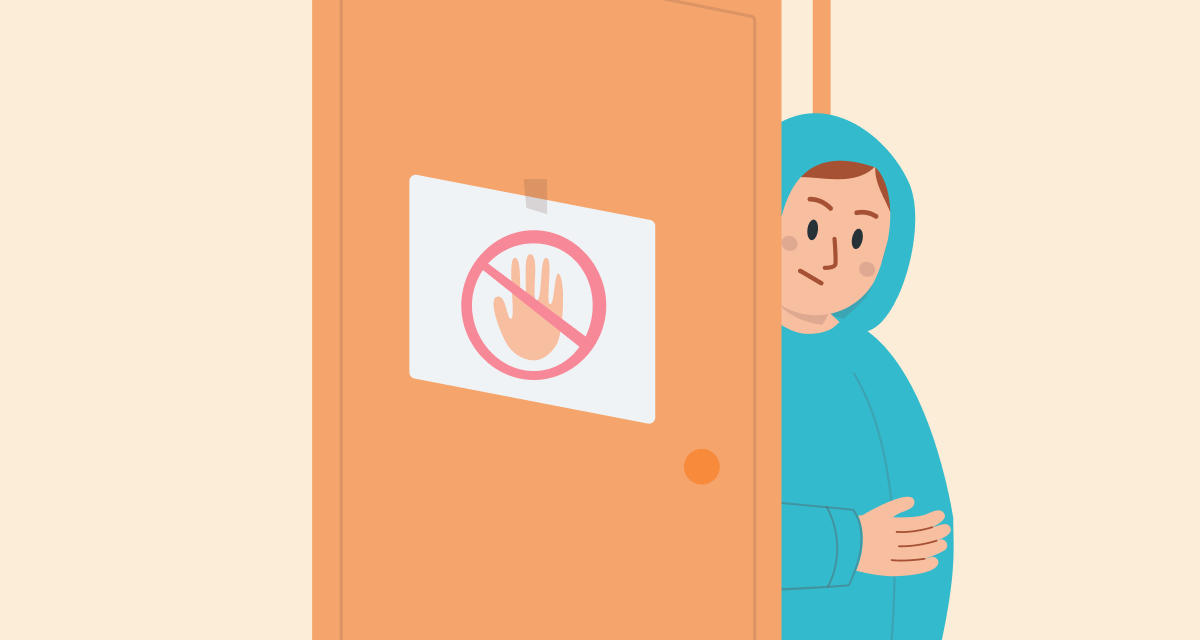Why Is My Teen So Distant and Disrespectful?

The teenage years are a time of intense internal change. Everything is shifting—body, emotions, thinking. To figure out who they are, teens need distance—physically and emotionally. And sometimes, that means conflict, arguing, and pushing people away.
Testing boundaries isn’t about destroying your relationship. It’s their way of finding a sense of stability inside themselves.
🤦♀️ Why Teens Start Acting This Way
The teenage brain is still developing—especially the prefrontal cortex, which helps with self-control, planning, and thinking before acting. That’s why your teen may snap, lash out, or get angry fast.
It’s not that they don’t love you. It’s just that their brain can’t always hit the brakes when emotions take over.
Now add hormonal changes, adolescent egocentrism (where teens feel everyone is looking at and judging them), social pressure, and a deep need to understand who they are—and you’ve got a young person who’s desperate to figure out their identity, limits, and who they can really rely on.
🚷 How Teens Test Boundaries
Boundary-testing in teens can look very different from one day to the next. Sometimes it’s an open argument. Other times, silence.
But behind that sharpness, there’s often a hidden question: “Will you still be there for me—even if I’m not who you want me to be at this moment?”
How it can show up:
- Arguing or insisting on their point of view—often with sarcasm or rule-breaking
- Withdrawing, ignoring, shutting down
- Breaking agreements—coming home late, forgetting promises and commitments
- Acting out—skipping school, showing up late on purpose
- Publicly distancing themselves from you
- Trying out new looks, habits, and friend groups
💪 What Can Help You as a Parent
Adolescence is a time of separation—from parents emotionally, mentally, and sometimes physically. At the heart of it is this question: “Do you love me, even when I’m not easy to love?”
Your job isn’t to win the argument—it’s to protect the relationship. Teens who feel safe and supported are better equipped to make healthy decisions during this intense period. They are also more likely to have higher self-confidence because they feel more comfortable “in their own skin”.
What helps most is being the adult your teen can lean on:
- Don’t focus on being “right”—focus on being present
- Offer choices, not ultimatums
- Ask open-ended questions and be willing to hear hard answers
- Know the difference between boundaries and control
- Respect their need for space—but stay emotionally close
- Stay calm, even when emotions get messy
- Keep the connection alive, even when they pull away
- Don’t turn every conversation into a lecture
- Avoid guilt, manipulation, and yelling
You don’t have to agree with everything. You don’t even have to approve. But your teen needs to know they’re heard. And when you can say “I love you, even when I’m angry”, you’re giving them something powerful: a foundation that lasts.
Testing boundaries doesn’t mean your teen is drifting away—it means they’re trying to find their way. Your steadiness, calmness, and love are what help them through. And if it feels like too much sometimes, reaching out to a therapist can be a great next step—for you or your teen.
References:
- Lecture “Brainstorm: The Power and Purpose of the Teenage Brain”, Dr. Dan Siegel, YouTube, 2016
- Cognitive and affective development in adolescence, Trends in Cognitive Sciences, 2005
- Adolescent–Parent Conflict: Resistance and Subversion as Developmental Process, Judith G. Smetana, 2005
Проверьте электронный ящик



















